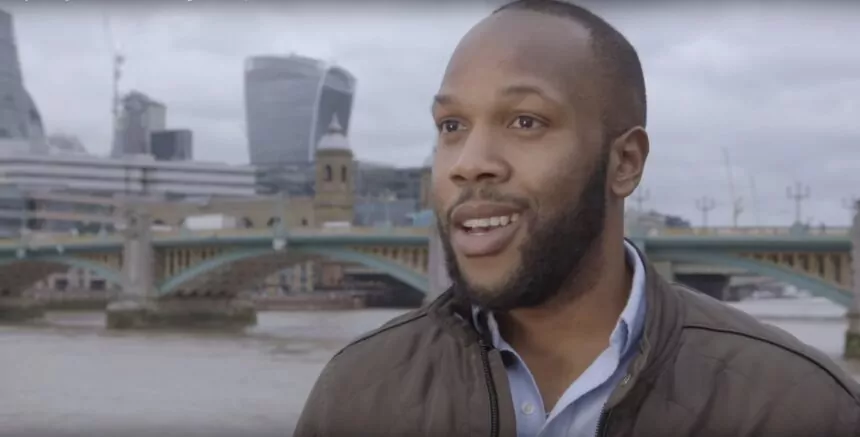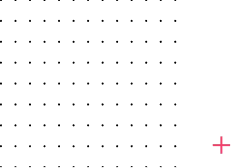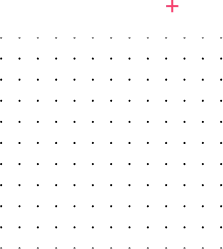Impact Innovators in the Zinc Ecosystem: Gary Izunwa, co-founder of Tangent

Gary Izunwa is a founder and public speaker who is passionate about social mobility and socioeconomic inclusion. He is on a mission to create a world where the social contexts you’re born into does not limit your career and wealth potential. Gary was part of Zinc’s fourth Venture Builder, where he co-founded Tangent, a platform that connects talented individuals from lower socioeconomic backgrounds with employees in tech companies for referrals.
What did your career path look like prior to joining Zinc?
I grew up in a low income, single parent home. I ticked lots of the less privileged boxes when I was younger, but have gone through an upwardly mobile journey since. I did well at school, went to university with a scholarship, did lots of internships and started my career on LinkedIn’s graduate programme. I was a top performer at LinkedIn and was there for three and a half years when I realised I wanted to have more of a socially impactful career. So I quit my six figure job, took an 80% salary reduction, and moved to the British Council, where I led their social mobility programs. Whilst I was there, I created my own social mobility podcast that was featured in the media, won an award from McKinsey & Company and kicked off my public speaking work. I always knew when I wanted to have a bigger, more global impact, I’d start my own company. But I didn’t know any investors or how to go about starting a business. This is where Zinc came in, where I met my co-founder Joe and we started exploring problems and solutions in the social mobility space together.
What problem is Tangent solving?
You are nine times more likely to be hired through an employee referral and 82% of employers rank referrals as their best recruitment channel. That’s great if you have a professional network, but if you come from a lower socioeconomic background, the chances are you don’t have this type of network and you’re locked out of the best recruitment channel. Tangent is an employee referral platform that combines video technology, AI, and a dynamic marketplace to make employee referrals accessible to everyone, not just a privileged few with established professional networks.
What excited you about the Zinc venture builder?
The fact that it is focused on social impact was really attractive to me. I’m very much a person that believes that you can match both profit and purpose, and Zinc just seemed to also understand that. I was really excited to be part of a community of like minded people that are working towards similar goals and have values that are aligned with mine. Also the mechanics of the platform and co-founder matching. Getting the support to identify problems and test assumptions. I felt pretty confident in my abilities, but it was raw and needed to be cultivated and refined. Zinc was a great environment for that. It helped me on my ongoing journey to become the best version of myself. And on a more practical level, the stipend for the first six months really helped to de-risk the jump into entrepreneurship. I felt like there was no reason to not give it a shot.
Did this path feel risky to you?
Looking back? No, not really. And I’d say this for a few reasons. Firstly I knew if I absolutely had to, I could revert back to employment in a similar role to what I was doing previously. Leaving LinkedIn to join the British Council felt more risky at the time because I was taking such a big pay cut. But you readjust quickly. In terms of the Zinc platform, the stipend, the office space, the wraparound support, the R&D team, the talks and the community all helped de-risk the journey. I felt like if I could be successful anywhere, this could be that place. I know that I was much more likely to succeed here, than if I tried to do it alone.
How have you used the Zinc network community of Fellows, advisors, experts and coaches?
There were so many resources at our disposal. We made a lot of use of the Fellows network, from technical experts and marketplace experts, to just bouncing ideas off people for a sense check and feedback. And if we had a question that someone in the Zinc team or Fellows network wasn’t able to answer, they were always able to introduce us to someone who could.
Through building Tangent, and more recently going through a fundraise, I’ve learned that in the start-up world it truly is about who you know. For better or for worse, that’s the way it currently is. It is all about your network. You can be a brilliant founder, with a brilliant idea, but if you don’t know the right people, you’re starting with a huge disadvantage. That is the harsh reality unfortunately. The Zinc network is designed to help solve this problem, and I’m really grateful for that.
What has the Tangent journey looked like to date?
We launched our MVP late last year and quickly grew to over a thousand users. We made our first sales to unicorn companies like Multiverse and GoCardless, who then went on to make hires through our platform in a very short amount of time. We’re at an exciting point. We have good traction and have demonstrated that Tangent is something that adds value to companies and they are willing to pay for it. We have just closed our first round of funding backed by an incredible line-up of investors. This means we’ve got a good amount of capital behind us now to really turbocharge things, build the next version of our product and make some key hires. It’s a really exciting stage of growth to be at.
What has surprised you the most on this journey so far?
A huge positive surprise has been that a lot of people are very willing to help. I think if you can be egoless and vulnerable, put yourself out there and say “I’m having trouble with this” – whether it is a personal, emotional or professional thing – there are a lot of people that can relate and are happy to support. On the flip side, a more unpleasant reality check has been just how network-driven the start-up world is in general. If you don’t already have a network, or aren’t able to build it quickly, this can be a challenging path. And this problem isn’t unique to start-ups, it’s so many professions. This is exactly why we have built Tangent.
What are you most proud of on this journey so far?
I’m proud that Joe and I have made so much progress, in a short amount of time, with very little money. We’ve brought a product to market that is being well used by customers and delivering tangible value. We’re having real impact already. Getting people jobs from backgrounds like ours, people that had never been to university before, people from immigrant backgrounds, people that have talent potential, but have never had the right access. We’ve built something that really works!
What have been some of your biggest challenges as a founder so far?
It can be really hard being a founder. It’s an emotional roller coaster. Some days you’re really excited, filled with ideas and optimism and the future looks really bright. Then the next day you can feel so despondent. Managing those ups and downs can be hard. You definitely need a support system, whether that’s friends, a coach, other founders or all of those things. I have to remind myself that we have been backed by some amazing investors, really smart people, and they must have seen something in me to believe I have what it takes.
And what keeps you motivated through the really hard days?
We are currently hiring and the calibre of candidates that share our vision and want to come and work for us is incredibly inspiring. Every day I believe more and more that we’re on to something massive. I believe we are building something that can be extremely huge and extremely impactful. I believe the world needs this to exist. And the further we get, the more I believe I am the right person to be building and leading it.
How do you look after your mental and physical well being on this journey?
I go to the gym and work out regularly with weights and cardio. That’s very important to me. And I also try to eat healthily. Emotionally, I’m quite a vulnerable person, so I’m very much open with my friends and other founders. I think talking through problems in a safe environment is very important. I’ve found that being open and vulnerable is really helpful because more often than not you realise that other people are going through the same challenges. I’m very much a relationship driven person, so spending quality time with friends and nurturing friendships and relationships is really important. I like to travel as well. I’ve learned that I can work in three or four month intensive bursts, and then I just need to escape to a different city or somewhere in Europe for a couple of days. That really helps me to recharge, and then I can go again. A big part of this journey has been figuring out the toolkit of things I need to be the best version of myself as a founder, then making sure I implement them.
Looking back on your Zinc founder journey so far, is there anything you would have done differently?
Firstly, always keep talking to users. When we built our first MVP and did a small pilot, we didn’t do any robust user testing alongside it. We launched it, people signed up, but they didn’t engage with it how we thought they would because the product wasn’t properly optimised for them. We had a rough couple of months because it was clear people saw enough value to sign up, but no insight on why they weren’t using it. We completely missed a huge opportunity there and learned a big lesson the hard way. The other one that comes to mind is around fundraising. We could have been much better prepared for this. With hindsight I would have done more mock pitches with founders who have recently raised. People who have recently been through the process and can grill us, give feedback and ask all the difficult questions in a safe environment.
What are you currently really excited about?
Because we’ve just fundraised, it feels like we have access to rocket fuel ready to take us to the next level. There is so much work to do and so many things to figure out, but just looking at the investors, team and customers we have, I’m just really excited. And I’m really excited about the new hires we’re making. There is so much hard work to come, but we’re heading in the right direction and we’re in a great position to succeed. Right now it feels like the world is our oyster!
What impact do you hope to have had over the next five to ten years?
Our mission with Tangent is to create a world where the socioeconomic context that you’re born into does not determine your career, and consequently your life outcomes. And I know we’re building something that can really move the needle on that. The best career opportunities and jobs will no longer be limited, or dictated by the strength of your network. These opportunities will be a lot more democratised and accessible to everyone, which means that companies will be performing better too. They’ll have the right talent in the right seat, in the right company. People will be happier. I fundamentally believe that what we’re building is good for economies and good for people and the world.
Do you have any favourite resources, tools or communities for support and advice as a founder?
I like Hustle Fund’s Uncapped Notes series on YouTube. Hustle Fund is a pre-seed VC based in the US and their videos cover lots of really practical aspects of early stage business building and fundraising. They are short, clear and get straight to really solid advice. They also have a really great newsletter which I recommend subscribing to. I listen to a lot of podcasts too. The Pitch podcast is one of my favourites. Each episode is a founder pitching their business to four or five different investors. It’s great, like being a fly on the wall. You get to hear excellent pitches then hear the types of questions the investors ask. If you listen to enough episodes you can really start to pick up on the common themes and patterns. Another favourite of mine is the Pitch Deck podcast by Nick Telson. Basically I’m trying to learn from other people’s mistakes, so I don’t have to make them!
What is your current top priority? And do you have any asks of the Zinc network?
Our top priority for the rest of this year is to really nail our product experience and product design. We’re focused on making sure we build Tangent so that both sides of the marketplace – job seekers and employees – can onboard onto the platform and, as seamlessly as possible, go through the user journey successfully. This is top of mind for us because we know it’s the key to unlocking our marketplace liquidity, where supply and demand are growing in equilibrium. We’re also focusing on user acquisition. We have done a good but scrappy job so far, but neither my co-founder or I have a background in growth marketing. We’d love to speak to people who understand acquisition, virality, referrals and growth. We need users, lots of them, because without users we don’t have a business.
Finally, what advice would you give to someone considering joining the next Zinc mission?
Come into the Venture Builder knowing what area you want to work on, don’t be too broad. There is a risk that if you spend too long dancing around different problem areas, you won’t find the co-founder or idea. If you don’t focus on something specific early, you’re making the process much harder for yourself. You know why you joined the platform, so be intentional, don’t get too distracted, and scratch that itch! It could feel risky because by doing that you’re narrowing down the pool of people who may want to work with you. But you will know that the people who do are more likely to be aligned on the vision from the get go. Secondly, the timing might not ever feel completely right to make this jump. I’d say don’t overthink it. If you have that inkling that you might want to start something and be in control of your own destiny, then just go for it. Zinc is a great platform for your own personal development, and understanding yourself much better. It’s a great forum for getting clarity on your own personal sense of purpose and taking steps in that direction. Not everyone will come out of Zinc and go on to found a unicorn, but there are lots of other great outcomes. The benefits and opportunities are endless!
Become a founder today! Our mission: to Improve the Health of People and the Planet. Does yours align with ours? Find out more on our website and apply today.
Join the Zinc community
Stay up to date with all Zinc updates and future posts as part of our fast growing community.
Featured Resources
Zinc Impact Report 2024
Zinc’s mission is to make the UK the best place to successfully start a venture which can have a massive impact on the health of people and the planet.
Increasingly, we are building deeper science ventures that serve global, industrial customers in environment and health, giving access to impact at a global scale.
Our 2024 Impact Report explores the challenges that need to be tackled to empower and enable talented founders from around the world to solve critical health and environmental challenges at scale, from here in the UK.
This report showcases success stories from the Zinc portfolio, and highlights how Zinc – and our growing community of hundreds of Founders, Fellows, Coaches, Partners and Funders – are working together to build a world-leading “Science-for-Impact” ecosystem for inception stage ventures in health and environment.
Impact Report 2023
We started Zinc with the hypothesis that missions are an effective way to attract highly ambitious, talented and experienced groups of innovators, who might not recognise themselves as “classic entrepreneurs” but are ready and able to start a new commercial and successful venture to tackle some of our most pressing societal issues.
The world has overcome the sorts of challenges we face today when it has adopted a mission-based approach to the biggest problems and brought together world-class talent to invent and innovate, e.g: NASA and landing a man on the moon, the LSE blueprinting the British welfare state, or the Gates Foundation aiming to eradicate diseases.
On this basis and assumption, we designed Zinc as a new mission-based Venture Builder — a place where global talent, ‘impact makers’, can join to experiment and develop new solutions to our most pressing societal issues.


